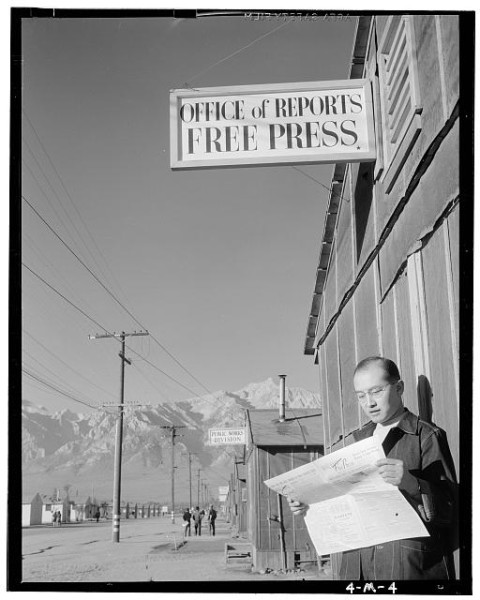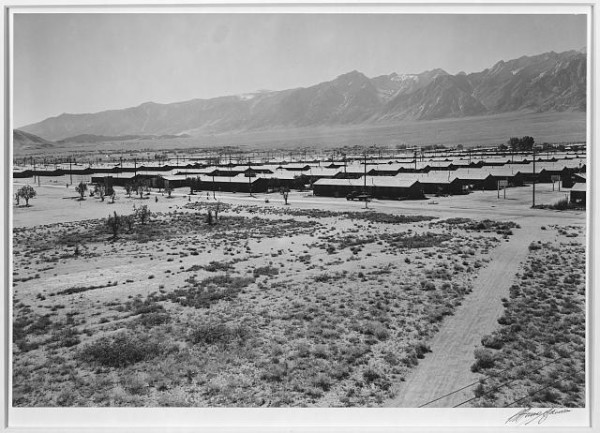 As a public official openly endorsed interning Syrian refugees just like Japanese Americans and a musical about the internment has opened on Broadway, the Washington Post has recently put up a montage of photos from famed landscape photographer Ansel Adams. During World War II, he was too old to be drafted, but wanted to help the war effort and volunteered his photographic skills. While not known for focusing on human subjects, he was asked to document life at the Manzanar internment camp. His photos became part of a controversial book called Born Free and Equal: The Story of Loyal Japanese-Americans.
As a public official openly endorsed interning Syrian refugees just like Japanese Americans and a musical about the internment has opened on Broadway, the Washington Post has recently put up a montage of photos from famed landscape photographer Ansel Adams. During World War II, he was too old to be drafted, but wanted to help the war effort and volunteered his photographic skills. While not known for focusing on human subjects, he was asked to document life at the Manzanar internment camp. His photos became part of a controversial book called Born Free and Equal: The Story of Loyal Japanese-Americans.
Why was the book controversial? It was released while World War II actively raged. Koji has pointed that Adams was not permitted to photograph guard towers, but Adams work is subtle in its subversiveness, as he took pictures from those very guard towers. I have included one of those pictures of Manzanar during the summer.

In 1965 Adams donated his Manzanar photos to the Library of Congress. With his donation offer he said:
“The purpose of my work was to show how these people, suffering under a great injustice, and loss of property, businesses and professions, had overcome the sense of defeat and dispair [sic] by building for themselves a vital community in an arid (but magnificent) environment….All in all, I think this Manzanar Collection is an important historical document, and I trust it can be put to good use.”
You can see the complete photo collection online at the Library of Congress. Various editions of Born Free and Equal: The Story of Loyal Japanese-Americans can be bought here and a PDF of the book is available here (scanned version, not the best reading or viewing quality). An exhibition of thephotographs is also being shown at the Skirball Cultural Center in Los Angeles through February 21, 2016, a collaborative effort with the Japanese American National Museum.








